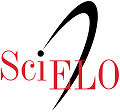Ciencia y fantasía en la narrativa de Amado Nervo
Keywords:
fantástico, positivismo, modernistas, cientificismo, ocultismo, imaginaciónAbstract
La coronación del positivismo como filosofía hegemónica durante el siglo XIX supuso la invalidación de un saber tradicional que se sustentaba en el imaginario, el mito, el espacio onírico y en sí en todas aquellas manifestaciones que no estaban condicionadas por ninguna clase de límites. Por lo tanto, en virtud del esquematismo y del afán clasificador de la nueva filosofía positivista, la experiencia humana padece un corte en su interior: las realidades factuales, tangibles, son separadas del reino de la imaginación. Es en esta coyuntura histórico-epistemológica que Amado Nervo (1870-1919), junto a otros representantes del modernismo hispanoamericano, concibe una obra artística en la que, precisamente debido a las circunstancias ya señaladas, podemos constatar una necesidad de suturar la incisión y recuperar la unidad perdida. Así, en sus cuentos fantásticos, Nervo muestra con frecuencia tal intención al conjuntar las herramientas de la indagación científica con la libertad del saber de la imaginación.
Downloads
Downloads
Published
How to Cite
Issue
Section
License
The authors always maintain the moral and patrimonial rights of their work. They only grant the non-exclusive license of use to Connotas for their first publication. Therefore, the authors may make other independent and additional contractual agreements for the publication of their article, review or other text originally published in Connotas or with modifications (including the title) as long as they clearly indicate that the paper was first published in Connotas. Revista de crítica y teoría literarias. Connotas undertakes not to make commercial use of the texts it receives or publishes.
See also "Copyright and Licences".





